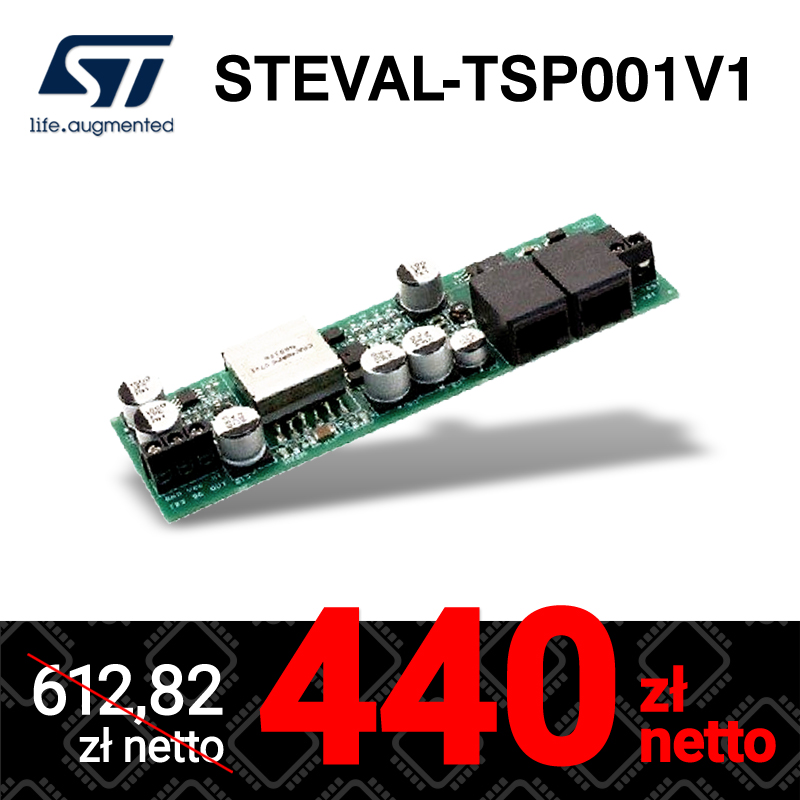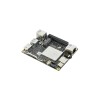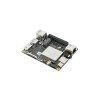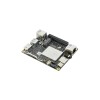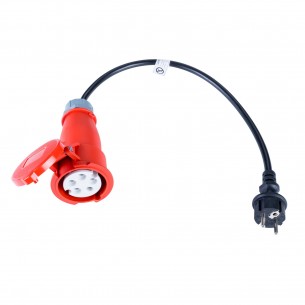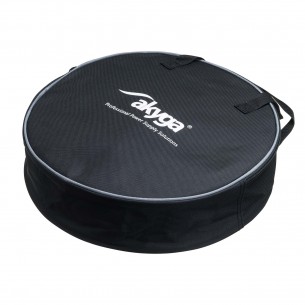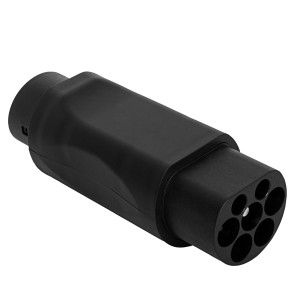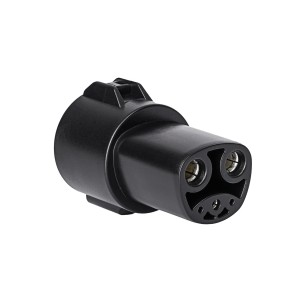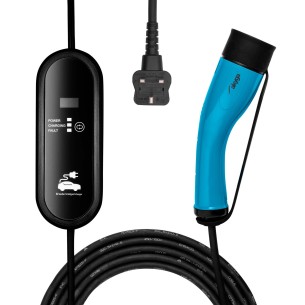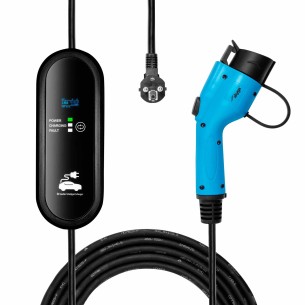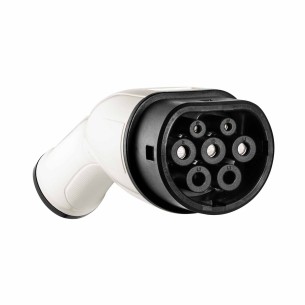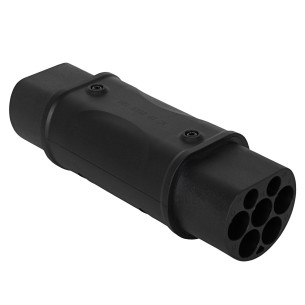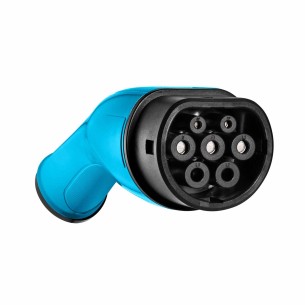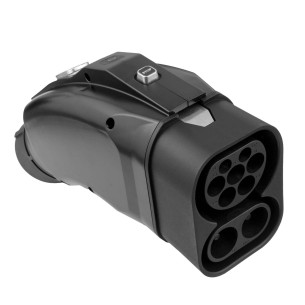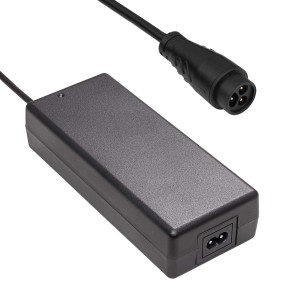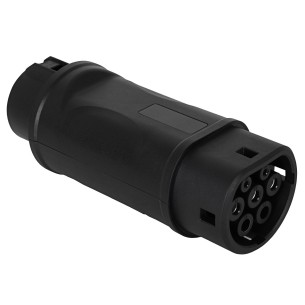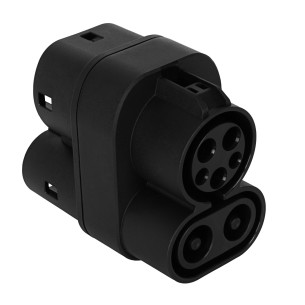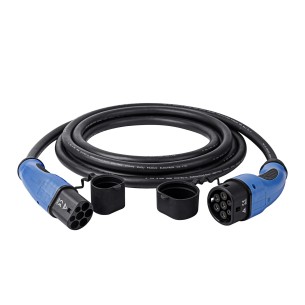Products
Categories
- Main categories
-
- 3D PRINTING
- ARDUINO
- AUTOMATION
- BOOKS
- CYBERSECURITY
- EDUCATION
- ELECTRONICS
- Cables
- Cameras and accessories
- Communication
- Conductive materials
- Connectors
- ARK connectors (Terminal Block)
- Banana connectors
- Coaxial connectors (RF)
- Connectors
- Crocodile clip
- D-Sub drawer connectors
- DC power connectors
- FFC/FPC ZIF connectors
- Goldpin connectors
- IDC connectors
- JACK connectors
- JST connectors
- Jumpers
- Memory cards slots
- Other connectors
- Pogo pin
- Quick couplers
- RJ45 connectors
- Slip ring connector
- Supports
- USB connectors
- USB PD Adapters for Laptops
- WF connectors
- Cooling
- Displays
- Electronic modules
- A/D and D/A converters
- Audio
- Barcode readers
- CAN converters
- Converters USB - UART / RS232
- Cryptographic module
- Data logger
- DDS/PLL generators
- Digital potentiometers
- Encoders
- Expanders of the I/O
- Fingerprint readers
- Galvanic isolation modules
- HMI modules
- Image and video
- JTAG accessories
- Keyboards, buttons
- LED drivers
- Memory card readers
- Memory modules
- Modules with power outputs
- Motor controllers
- Power modules
- Protection modules
- RS485 converters
- RTC modules
- Servo Controllers
- TSOP infrared receivers
- USB Converters - I2C / 1-Wire / SPI
- Voltage converters
- Gadgets
- GPS
- Intelligent clothes
- LED - diodes, displays, stripes
- Luminous wires and accessories
- Machine vission (MV)
- Memory cards and other data storages
- Passive elements
- PC accessories
- Printers
- Programatory czasowe
- Prototype boards
- Relays
- Semiconductors
- A/C converters (ADC)
- Analog systems
- Audio systems
- Bridge rectifiers
- Button
- D/A Converters (DAC)
- DDS synthesizers
- Digital circuits
- Diodes
- Drivers of motors
- DSP microprocessors
- Energy counters
- Energy harvesting
- ESD security
- IGBT drivers and bridges
- Interface systems
- LED drivers
- Logic converters
- Memory
- Microcontrollers
- Optotriacs and optocouplers
- Other
- PLL generators
- Power systems
- Programmable systems
- Resetting systems
- RF systems
- RTC systems
- Sensors
- SoC systems
- Timery
- Touch sensors
- Transistors
- Sensors
- Accelerometers
- Air humidity sensors
- Air quality sensors
- Current sensors
- Distance sensors
- Flow sensors
- Gas sensors
- Gyroscopes
- Hall sensors
- Humidity sensors
- Infrared sensors
- Laser scanner
- Light and color sensors
- Liquid level sensors
- Magnetic sensors (compasses)
- Medical sensors
- Motion sensors
- PH sensors
- Position sensors
- Pressure sensors
- Pressure sensors
- Reflection sensors
- Sensors 6DOF/9DOF/10DOF
- Sensors of liquid quality
- Temperature sensors
- Vibration sensors
- Sound transducers
- Switches and buttons
- Cables
- FPGA DEVELOPMENT KITS
- MEASURING DEVICES
- Anemometers
- Cable testers
- Distance measurement
- Electronic loads
- Generators
- Insulation resistance meters
- LCR meters
- Logic analyzers
- Measures and calipers
- Multimeters
- Network analyzers
- Oscilloscopes
- Other meters
- Panel meters
- Radiation detectors
- Sound meters
- Temperature measurement
- Testery USB
- Voltage indicator
- Wattmeters
- Weights
- MECHANICS
- MINICOMPUTERS (SBC)
- POWER
- RASPBERRY PI
- Accessories for Raspberry Pi
- Audio video cables for Raspberry Pi
- Case Raspberry Pi
- Cooling for Raspberry Pi
- Displays for Raspberry Pi
- Extension modules for Raspberry Pi
- Memory cards for Raspberry Pi
- Power for Raspberry Pi
- Raspberry Pi 3 model A+
- Raspberry Pi 3 model B
- Raspberry Pi 3 model B+
- Raspberry Pi 4 model B
- Raspberry Pi 400
- Raspberry Pi 5
- Raspberry Pi 500
- Raspberry Pi cameras
- Raspberry Pi Compute Module
- Raspberry Pi model A/ B+/2
- Raspberry Pi Pico
- Raspberry Pi prototyping
- Raspberry Pi Zero
- Raspberry Pi Zero 2 W
- RETIRED PRODUCTS
- SALE
- STARTER KITS, PROGRAMMERS, MODULES
- Atmel SAM
- Atmel Xplain
- AVR
- Coral
- DFRobot FireBeetle
- ESP32
- ESP8266
- Feather / Thing Plus
- Freedom (Kinetis)
- M5Stack
- Micro:bit
- Nordic nRF
- Other development kits
- Particle Photon
- Peripheral modules
- PIC
- Raspberry Pi RP2040
- RFID
- RISC-V
- Seeed Studio LinkIt
- Segger programmers
- SOFTWARE
- Sparkfun MicroMod
- STM32
- STM32 Discovery
- STM32 MP1
- STM32 Nucleo boards
- STM8
- Teensy
- Universal programmers
- WRTNode
- XIAO/Qt PY
- Atmel SAM
- WORKSHOP
- Adhesives for hot glue guns
- Chemistry
- Agents for securing electronics
- Cleaning and preserving agents
- Compressed air
- Conductive paints and varnishes
- Distilled water
- Etcher
- Freezing
- Gas for lighters and burners
- Isopropyl alcohol (IPA)
- Label removers
- Lubricants, oils
- Pastes and adhesives thermally conductive
- PCB cleaning products
- Thermopads - thermally conductive tapes
- CNC milling machines
- Crimping tools
- Dispensing needles
- Gluers
- Glues
- Heat-shrink tubing
- Insulation strippers
- Knives
- Laboratory power supplies
- Microscopes
- Mini drills and grindrers
- Organizers
- Personal protection (OHS)
- Power tools
- Sandpapers
- Scissors
- Soldering
- Antistatic mats and accessories (ESD)
- BGA balls
- BGA rework stations
- Brushes and ESD brushes
- Desoldering Wick
- Handles, magnifiers
- Heat guns
- Heaters and soldering irons
- Laminates
- Portable soldering irons
- Silicone Soldering Mats
- SMD Accessories
- Soldering accessories
- Soldering chemistry
- Soldering irons
- Soldering pastes
- Soldering pots
- Soldering stations
- Soldering tips
- Sponges and cleaners
- Stand for soldering irons
- Tin
- Tin extractors
- Ultrasonic cleaners
- Tapes (aluminum, kapton, copper, insulating)
- Tools
- Tweezers
- Vices
- Workshop lighting
- 3D PRINTING
New products
New products New products
Category: Electric car chargers
Electric Vehicle Chargers – The Future of Mobility
Electric vehicle chargers are a key element in the infrastructure of future mobility. More and more people are choosing to purchase electric vehicles, creating a growing demand for efficient charging solutions. EV charging stations are an indispensable element that enables the daily functioning of electric vehicles, providing users with convenience and safety. Choosing the right EV charger is crucial for both vehicle owners and the environment. User-friendly home EV chargers allow for comfortable charging at home, while fast EV chargers at public stations shorten the waiting time for a full battery charge. In this article, we will present various types of EV chargers, their installation, and EV charging accessories that can significantly impact the efficiency and convenience of using electric vehicles.
There are 34 products.
Adapter designed for electric car chargers. It allows you to transform the CEE 5-pin 400 V connector into the CEE 7/7 230 V / 16 A connector. Akyga AK-SC-E06
A durable case designed to store cables for charging electric cars. Ensures the safety of cables and EV charger control modules. Akyga AK-AC-02
No product available!
The AK-SC-E13 plug is a reliable Type 2 connector designed for service and construction applications in EV charging systems. Thanks to high-quality workmanship and compliance with the IEC 62196-2 standard, it ensures full compatibility with European charging stations. Silver-plated contacts and a durable construction provide longevity and safe operation at currents up to 32 A. An ideal choice for cable repair or building custom EVSE adapters.
No product available!
The Akyga AK-SC-E08 adapter converts the Type 2 connector to Type 1, allowing you to charge older models of electric cars and those imported from overseas at European charging stations. Made of durable materials, it guarantees long service life and reliability. Akyga AK-SC-E08
No product available!
The Akyga AK-SC-E07 Tesla Charging Adapter allows you to charge American Tesla models in Europe using a Type 1 charger. It is small, solid and compatible with Tesla Models S, X, 3 and Y. Perfect for people bringing a Tesla from overseas. Akyga AK-SC-E07
No product available!
Akyga AK-EC-20 charger with a Type G plug and Type 2 connector is designed for single-phase electric vehicle charging in the United Kingdom and Ireland. It offers adjustable charging current up to 13 A and a maximum power output of 3 kW, enabling safe power supply for a wide range of EVs. Equipped with multiple protection features and an LED display, it is a reliable solution for both home users and mobile applications. Ideal for use in urban and suburban environments.
No product available!
The Akyga AK-EC-19 charger with a Type 2 connector is a solution for electric vehicle users who require a mobile, safe, and adjustable charging source. It supports single-phase installations and allows for current adjustment from 8 A to 16 A, increasing compatibility with various home power networks. With an IP54 protection rating, multiple safety features, and a durable design, it can be used in a variety of conditions. A practical carrying case and a clear LED display enhance user convenience. Ideal for everyday use at home and while traveling.
No product available!
Akyga AK-EC-18 is a 1-phase EV charger with 3.8 kW power and a Type 1 connector, designed for home and mobile use. Thanks to adjustable charging current, an LCD screen, and a full set of protections, it offers a safe and flexible solution for owners of electric vehicles compatible with the J1772 system. Equipped with a 5-meter cable and a transport bag, it is perfect for everyday use.
No product available!
The Akyga AK-SC-E14 plug is a reliable female Type 2 connector designed for repairing or building electric vehicle charging cables. It supports currents up to 32 A in single-phase installations and is equipped with silver-plated contacts and a 220 Ω resistor. It ensures compatibility with European EV standards and serves as a durable solution for home installations and semi-professional AC charging systems. Ideal for users looking for a proven component to upgrade EVSE infrastructure.
No product available!
Akyga AK-SC-E10 is an adapter that allows you to charge Chinese electric cars, such as BYD, in European charging stations with a Type 2 socket. It is solidly made, ensuring safety and reliability during charging. Akyga AK-SC-E10
No product available!
Akyga® AK-EC-21 is a three-phase wallbox with a power output of up to 11 kW, equipped with a Type 2 connector and a 5-meter cable, designed for wall mounting. The device offers broad compatibility with electric vehicles and an advanced safety system. The set includes RFID cards for access authorization, making the AK-EC-21 a functional and safe solution for home EV charging. An ideal choice for private use requiring fast and secure charging from a three-phase installation.
No product available!
The Akyga® AK-EC-22 is a professional three-phase charger designed for fast and safe charging of electric vehicles using the Type 2 standard. Featuring adjustable current settings, advanced safety protections, and compatibility with 400 V power systems, the charger offers both convenience and flexibility for use in residential and commercial environments.
No product available!
The Akyga® AK-SC-E16 is a high-quality solution designed for building or repairing charging cables for electric vehicles compatible with the Type 2 standard. Its durable construction, high current capacity up to 32 A, and compatibility with European charging stations make it a reliable choice for users and installers of EVSE systems.
No product available!
The Akyga® AK-SC-E17 plug is a high-quality component for EV charging systems compliant with the Type 2 standard. Thanks to its durable construction and support for 3-phase charging up to 32 A, it provides a reliable solution for repairing charging cables or building custom EVSE stations. It is ideal for use in both residential and professional electric vehicle charging installations.
No product available!
The Akyga® AK-SC-E18 adapter enables fast charging of electric vehicles with a CHAdeMO connector at European charging stations equipped with CCS2 plugs. Thanks to its high-performance specifications, durable construction, and compliance with international standards, it is an essential accessory for owners of EVs imported from Asia and the USA, such as the Nissan Leaf or Mitsubishi Outlander PHEV. The adapter supports DC fast charging up to 250 kW, ensuring convenience, safety, and full compatibility with European charging infrastructure.
No product available!
Electric vehicle charger for 60V battery systems, 67.2V output voltage, 1.75A charging current, 118W output power, LP16 male connector, 1.2 m cable. Akyga AK-EV-21
No product available!
The Akyga AK-SC-E09 adapter is a converter from Type1 to Type2, allowing you to charge modern electric cars using older EVSE chargers. This is a practical solution for those who do not want to immediately modernize their charging station. Akyga AK-SC-E09
No product available!
The Akyga AK-SC-E11 adapter allows you to convert the CCS1 connector to CCS2, which is useful when only the CCS1 connector is available at the fast charging station and the electric car has a CCS2 socket. This adapter makes DC charging simple and fast. Akyga AK-SC-E11
No product available!
Single-phase electric car charger with Type1 plug. It allows you to charge from a home socket, has an adjustable charging current and a number of safeguards to ensure work stability. Akyga AK-EC-01
No product available!
Akyga AK-EC-16 is a cable for charging electric cars with Type 2 plugs (Mennekes). It enables fast charging with a 3-phase current of 32 A and is ideal for cars with large batteries in Europe. Equipped with a comfortable handle, it ensures ease and safety of use. Akyga AK-EC-16
No product available!
EV Charging Stations – Key Charging Locations
EV charging stations are the heart of the electric vehicle charging infrastructure. Located in strategic urban and highway points, they enable drivers to charge their vehicles during travel. We distinguish several types of charging stations, including standard AC charging stations and fast DC chargers, which can charge a vehicle in just a few minutes. Public EV charging stations are usually equipped with various types of connectors, such as CCS, CHAdeMO, or Type 2, which allow charging different models of electric vehicles. Investments in the development of the EV charging station network are crucial for increasing the range of electric vehicles and promoting their widespread use.
EV Chargers – Choosing the Right Solution
Choosing the right EV charger depends on many factors, such as the vehicle model, charging location, and individual user needs. Home EV chargers, such as wallboxes, offer the convenience of charging in the privacy of one's garage or driveway. These types of chargers are usually easy to install and use, and their power allows for a full battery charge overnight. Fast EV chargers, available at public stations, enable charging the vehicle in a shorter time, which is especially useful during long journeys. It is also worth considering portable EV chargers, which can be used in various locations, providing flexibility and mobility.
Fast EV Chargers – Reducing Charging Time
Fast EV chargers are invaluable for drivers who frequently travel long distances. Thanks to DC fast charging technology, these chargers can charge a vehicle's battery to 80% in less than an hour. This significantly reduces waiting time and allows for continuing the journey without long breaks. Fast EV chargers are usually equipped with advanced cooling and energy management systems, ensuring the safety and efficiency of the charging process. Supporting the development of fast charging infrastructure is crucial for the popularization of electric vehicles and reducing their environmental impact.
Home EV Chargers – Charging Comfort at Home
Home EV chargers are an ideal solution for people who want to charge their electric vehicles at home. Installing a wallbox in the garage or driveway allows for convenient and quick vehicle charging, eliminating the need to use public charging stations. Home EV chargers are available in various power levels, allowing them to be tailored to individual needs and home electrical capacities. Modern chargers also offer smart features, such as remote management and monitoring of the charging process via mobile apps. This way, users can control the charging of their vehicle even when they are not at home.
Portable EV Chargers – Mobility and Flexibility
Portable EV chargers provide electric vehicle users with exceptional flexibility and mobility. These types of chargers can be easily transported in the car trunk and used in various locations where electrical outlets are available. Portable chargers are an ideal solution for people who frequently travel or do not have access to permanent charging stations. Depending on the model, portable EV chargers can offer different charging power, allowing the charging time to be adjusted to current needs. Portable chargers are also a great emergency solution when it is necessary to charge the vehicle in unexpected situations.
Types of EV Chargers – Matching User Needs
Various types of EV chargers are available on the market, which can be tailored to individual needs and user preferences. We distinguish AC and DC chargers, which differ in power and charging time. AC chargers are most commonly used at homes and workplaces, offering moderate charging power, which is sufficient for daily use. On the other hand, DC chargers are designed for fast charging, making them an ideal solution at public stations and along highways. An important element of EV chargers is also the connectors, which must be compatible with a given vehicle model. The most popular standards are Type 2, CCS, and CHAdeMO.
EV Charger Installation – Step by Step
Installing EV chargers is a crucial step that requires proper preparation and adherence to specific guidelines. Before starting the installation, it is worth consulting with a professional electrician who will assess the technical possibilities and help choose the appropriate charger. Installing a home charger usually requires preparing a dedicated electrical circuit and proper installation protection. In the case of public chargers, the installation process is more complex and also includes obtaining the necessary permits and cooperation with energy suppliers. Well-conducted installation of the EV charger ensures safe and efficient charging of electric vehicles.
EV Charging Accessories – Enhancing the Charging Process
EV charging accessories can significantly improve the convenience and efficiency of charging electric vehicles. Among the most popular accessories are charging cables, adapters, wall mounts, and protective covers. Charging cables are available in various lengths and power levels, allowing them to be adapted to a specific charger and charging location. Adapters enable the use of different types of connectors, which is especially useful during travel. Wall mounts allow for aesthetic and safe storage of charging cables, preventing their damage. Protective covers protect connectors and chargers from weather conditions, and thanks to this, they extend their lifespan.

